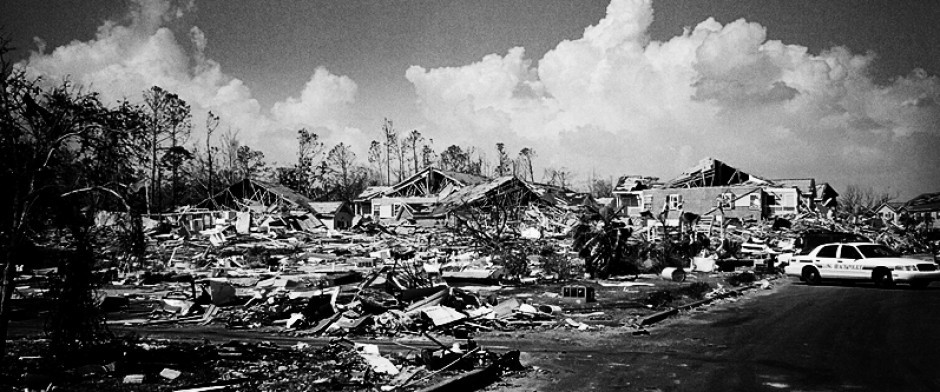By now, unless you are already off-grid, you know that a viral outbreak, which began in China, has now gone global. There should be no doubt this is going to cause massive disruptions across the globe, yet due to what many politely refer to as “normalcy bias,” Americans appear oblivious. Even those that are paying attention seem to be under an illusion that the government has a secret plan that will spare the United States from the chaos now spreading across China. Now, as the numbers of infected explode exponentially higher globally, the questions people should be asking are what should I do and when. This is no longer any question of “if” this virus is going to become a pandemic. This pandemic will be a game changer that cannot be averted. So now what?
What should we do is the question I hear most often? As we sit on the eve of a truly global catastrophe, I can’t help thinking that this has eerie similarities to how Americans ignored the warnings as Hurricane Katrina barreled toward the Gulf Coast. In spite of what were very clear warnings and indications Hurricane Katrina was going to cause massive damage, people chose to ignore the ugly reality. Instead of taking action, they found comfort in creating a false reality where nothing changed and everything was going to be okay. Those people died as the levies burst and Katrina’s storm surge poured into the low-lying neighborhoods of New Orleans. The normalcy bias is lethal and you must break free of it mentally. For what it’s worth, Wikipedia defines normalcy bias as “a tendency for people to believe that things will always function the way they have normally functioned and therefore underestimate both the likelihood of a disaster and its possible effects.” The site goes on to claim up to 70% of people display a normalcy bias during a disaster. Americans more than any other people seem to be taught from birth that they have a “right” to happiness and will willfully ignore reality. In fact, many Americans will simply refuse to listen to bad news if it doesn’t fit their created “reality.” Unfortunately for them, denial of reality has never made a person immune from the consequences of reality. As such, the first thing you need to do is realize the gravity of the situation.
How bad will it get is the natural follow-up question. The truth is no one totally knows, but we do have some good insights based on what is occurring in the rest of the world. No one should be under any illusion that people are going to be forced to stay home in mass quarantines of entire cities and regions. All public gatherings will be cancelled. All non-essential travel will be cancelled. Most if not all public transit will be shut down. Businesses and schools will be forced to close. Hospitals will be overrun. Supply shortages will become acute. The global economy will lose trillions. Social unrest is bound to break out and at least limited martial law may be imposed in some of our major cities. The cumulative effect will be big enough to shake up the global order of things. Further, remember disease is an equal opportunity killer and doesn’t discriminate based on your level of wealth. Without doubt, many older people will die. Some of these people will be elites. If you take the government’s numbers at face value, this virus kills approximately 2.2% of those infected. However, of those infected, it kills a much higher number of the elderly and people with pre-existing conditions such as obesity, diabetes, and heart disease. Take a look at our ruling elites around the world. How many fit that category. By time this is all over, many of them could be dead if a vaccine isn’t quickly developed.
At this point, you are already better off than 70% of the population if Wikipedia is to be believed because you now have internalized as fact, things are not going to be the same. You have overcome the normalcy bias. This is key because now you can properly appreciate the growing body of information to know what post outbreak life will be like. That hurdle is literally the most difficult mental jump for most Americans so congratulations. Now, with your eyes opened, you are ready to make a plan and take action. Let’s look more specifically at key areas and discuss what can be done.
The economic impact is going to be massive. There is just no avoiding this one. The stock market is going to crater so consider liquidating equities that aren’t long hold or gold related. After the markets dropped today, it may be too late to sell your stocks and you have to ride out the storm. For those savvy enough to trade options or short stocks you already know there is money to be made as the market goes down. At minimum, the best advice for most people is to simply start pulling out cash. Keep only what you need in your accounts. As the virus spreads, banks could quickly become insolvent. This will almost undoubtedly lead to banking holidays, freezes, and collapses.
Supply chain disruptions will also become common. Businesses will be forced to shut down operations. China to some degree can attempt to force workers to go back to work (doesn’t appear even in China this has been successful), but for liability reasons alone, forcing employees to come to work in the West is a non-starter. This will quickly lead to widespread supply shortages. Anything you think you will need to hunker down and wait out the storm, you should stock up on now. Based on China, one should prepare to go months, not weeks, without essential supplies if you want to avoid sick people. Further, do not rely on delivery services. As soon as the first stock worker at a fulfillment center falls ill, Amazon and others will be forced to reduce or suspend operations. At the top of your list should be essential medications and non-perishable food stuffs. You can tolerate a lot on a full belly, but once you become hungry, things get ugly fast. In particular, Americans simply do not know what it’s like to go without or starve. Expect people to be very angry if they can’t get their soymilk and beer.
Censorship and false information always go hand-and-hand with major disasters. Let’s start with the internet, news, and tech companies. China has deleted all but a very few stories that were smuggled out. Even the doctor that initially called attention to the virus was suppressed and ultimately died in China. It’s not just China though. In the West, a popular site called Zero Hedge was banned on Twitter for simply suggesting there could be a link between the virus and scientists in China that had worked on similar pathogens https://www.zerohedge.com/. Most would not have even cared or noticed, but it was enough to send the censors into a frenzy. Why not allow the readers to make up their own minds? You see, during a crisis, the governments must control the narrative. Truth has to be what they create or it will be censored. We have words for this…propaganda, misinformation, and disinformation. This isn’t good for you or society and certainly hasn’t helped us prepare for the pandemic. We have already seen China manipulating data and outright lying about the severity of the outbreak. Further, the Centers for Disease Control and Prevention and the World Health Organization (WHO) have been anything but candid. The WHO in particular seems to be parroting communist party lines and kowtowing China’s demands at the expense of sensitizing the rest of the world to the severity of the crisis. Back home, the CDC hasn’t done Americans any favors either and appears far more interested in suppressing the actual number of infected than preparing Americans. Remember, it is always in the government’s interest to attempt to maintain order to maintain their power. Their interest is status quo. If people get upset and unrest breaks-out, they are not there to help you. They are there to control you. They are there to ensure they stay in power. In almost every case, this means you are the one that will have to suffer for the “greater good.”
Don’t plan on the government helping you. The government doesn’t have a magic bullet. They simply can’t help everyone. Further, they aren’t good at it as demonstrated by the Department of State’s botched medical evacuations of Americans from China and the Diamond Princess cruise ship in Japan. Instead of helping, expect the government to act in a broad heavy-handed fashion such as locking down entire cities irrespective of the interests of the citizens. Depending on where you happen to be, this may prevent you from escaping the pandemic. In fact, like the people quarantined to the cruise ship, the government’s actions put them at far greater risk. Partial and then full quarantines are almost a certainty and Americans are not going to like it. Also, the “government” isn’t some far off group of superhumans that are immune to this disease. We will be lucky if the garbage men show up to work in most areas. As soon as a soldier shows up on base or at the Pentagon with this virus, the whole place will be closed down. Congress is certainly not going to hold session in D.C. with a major pandemic spreading. Even the White House will be forced to shut its doors and move to an offsite location. Contractors and staffers definitely are not going to be there to support operations. The point is there will be very few people left at work to steer this ship and you are not going to be their priority.
Families are going to be forced to make tough decisions. I can’t make these decisions for you, but you should consider them now. Do you stay together because you or your spouse has an essential job or do you bug out separately? Do you avoid your parents because they are more susceptible to the virus? What about your kids? Who is going to stay home to take care of them? The first child that shows up sick in school will also cause an instant exodus. I doubt many school systems in the U.S. will be able to complete this year without a major disruption. How about pets? Do you have enough feed on-hand to sustain them through a long quarantine?
Where to from here? Is it time to bug out? You ultimately have to make the call. The virus can take weeks to show so by the time “everyone” is sick, it will be too late to bug out. If you are going to go, this week is probably getting close to check-out time if you live in any major city in the U.S. If you are solo or want to risk it, you may get another week, but quarantines can be enacted very rapidly. Now is the time to get things in order, check your gear, restock essentials, and make your plan. Very soon, it will be time to cash out, pack out, and get out.
By Guiles Hendrik
February 24, 2020


